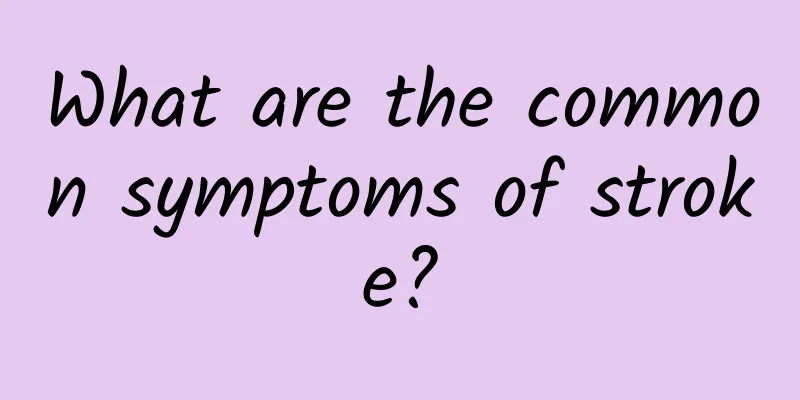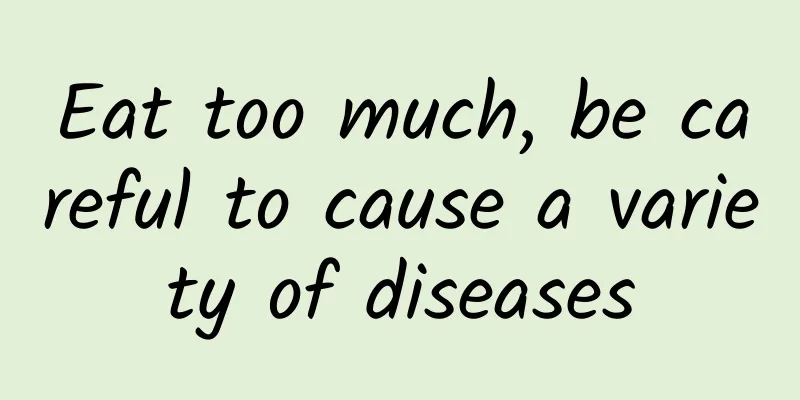What are the common symptoms of stroke?

|
Because the location of brain lesions, severity of lesions, and personal conditions of different stroke patients are different, the manifestations of each stroke patient are different. The following are some common manifestations of stroke: (1) Unilateral limb weakness: usually manifested as weakness on one side or only weakness in the arm or leg. If this symptom of numbness or weakness on one side occurs, then the stroke lesion is on the opposite side of the brain. For example, if the stroke lesion is on the left side, the patient will experience numbness or weakness on the right side. (2) Balance or coordination disorders : Although the patient's limb muscle strength is normal, he or she may have difficulty sitting, standing or walking. (3) Language difficulties ( aphasia or dysarthria): Aphasic patients may be unable to understand or write; or they may understand normally but be unable to express or write. Dysarthria manifests as unclear pronunciation and slurred speech , which we often call "tongue-in-cheek". (4) Ignoring the existence of one side of the limbs or neglecting one side (visual neglect): The patient often cannot feel the existence of the affected side , ignores one side of the limbs, or only eats food on one side of the plate due to visual neglect . (5) Pain, numbness or paresthesia: sudden onset of headache that is different from previous attacks, or pain in one limb or body; numbness or paresthesia in the limbs, especially at the ends of the limbs such as fingers or toes, or a sensation of ants crawling or tingling in the cheek skin on the hemiplegic side, or a slow response to stimulation . Numbness is often related to weather changes . The numbness is particularly obvious when the weather changes suddenly, when it is hot and humid, before and after rain, or when the weather is cold. When these symptoms occur, it is difficult for the patient to relax or feel comfortable. (6) Patients may have difficulties with memory, calculation, attention or learning (cognitive impairment): Patients may have mild intellectual impairment or severe impairment, such as decreased memory, difficulty in calculation, lack of concentration, loss of direction, lack of knowledge of place or time. (7) Decreased judgment: The patient may make incorrect judgments about events, which may lead to dangerous behaviors that endanger themselves or others. (8) Dysphagia: Patients may experience difficulty swallowing and choking when drinking water, which may result in the patient being unable to take in enough food. In more serious cases, dysphagia may cause the patient to aspirate food, which enters the trachea and causes aspiration pneumonia. (9) The patient has problems controlling bowel and bladder: Bowel and bladder incontinence may occur when autonomic nervous system disorders occur. This situation can be solved by using a bedpan or other washing equipment. (10) Fatigue: Fatigue may limit the patient’s recovery . (11) Sudden emotional outbursts, such as sudden crying, laughing, or anger : These may indicate that the patient needs help, understanding, and adjustment of the post-stroke patient's psychology . (12) Depression: This is common in stroke patients. It may occur soon after the stroke or a few weeks later, and the patient's family is usually the first to notice it. Brain damage can affect the patient's movement, sensation, behavior, speech and thinking. After a stroke, some patients have part of their brain that works normally, but other parts do not. (13) Impairment of consciousness: When lesions in the brain stem or large-scale lesions in any part of the brain cause damage to the nerve cells or nerve conduction pathways in the brain that are responsible for the state of wakefulness, impaired consciousness may occur, including drowsiness and coma . Patients with impaired consciousness often have a poor prognosis . It should be noted that stroke patients may experience the above symptoms, but patients experiencing the above symptoms do not necessarily have a stroke. When the cause cannot be confirmed, especially when the above symptoms appear for the first time, you should seek help from a professional doctor. |
<<: The relationship between atherosclerotic plaque and stroke
Recommend
Does pregnancy with uterine fibroids affect the baby?
Uterine fibroids, also known as fibroids, are mai...
Is it possible to get pregnant if you have sex on the day of ovulation?
Many couples who are preparing for pregnancy want...
Married for many years but infertile, the truth behind it is too scary
There are many reasons for infertility, which can...
Google: Revenue growth in 4Q17 cannot stop profit decline, and the contribution of new business revenue is still negligible
Google's parent company Alphabet released its...
What are the breast massage techniques for pregnant women?
Women face breastfeeding after childbirth, and th...
The reason why women have less menstrual blood and darker color
Women must pay attention to the color of their me...
What is the 24-hour donation phone number in Wuhan? What should I do if I can't buy food in Wuhan?
The impact of Wuhan's lockdown is that all pu...
Can pregnant women eat some leeks?
Because everyone wants to have a healthy and smar...
How should women take care of their private parts after the sweet time?
Not every couple can hit the jackpot in one go. S...
Omdia: Demand for smartphone display panels will drop to 1.425 billion in 2022, down 18% year-on-year
Omdia's latest "Smartphone display marke...
Shorter menstrual periods
In the past, when we were young, most girls didn’...
The difference between cervical biopsy and TCT
Many female friends suspect that they have gyneco...
Can I eat pears during menstruation?
We all know that the snow pear is a cool fruit, w...
What to do if you have onychomycosis during breastfeeding
Onychomycosis is a very serious infectious diseas...
What are the massage techniques for preventing stretch marks?
Women will have stretch marks when they are pregn...









